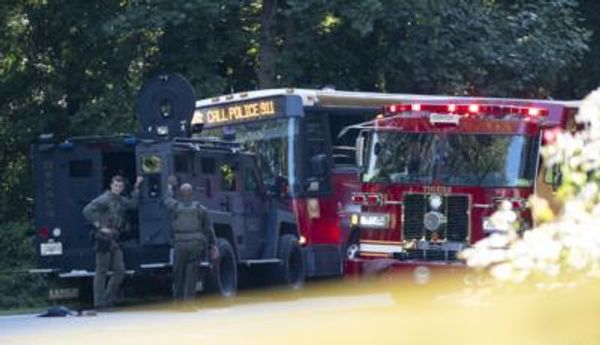
SHARK nets will be rolled out at beaches from Newcastle to Wollongong for the summer swimming season despite opposition from conservation groups and some councils.
NSW agriculture minister Tara Moriarty said the state government would assess other options to keep swimmers safe in the future, but nets would be part of the shark management program from September 2023 to April 2024.
She said using the "full suite" of measures this season - including a mix of modern and traditional technologies - would help the government gather data to make more informed decisions about changes for the following year.
"Nets are only set from September to April to avoid the majority of the whale migration season and are fitted with acoustic devices designed to deter marine mammals from interacting with them," she said.
Consultation between the state government and some coastal councils had been under way, with many local governments calling for the nets to be permanently replaced with proven non-lethal shark management alternatives.
These include drones and alert systems like SMART drumlines already used at multiple beaches.
"The NSW government will continue to listen to coastal councils and their communities to ensure that local preferences are balanced against effective, evidence-based shark mitigation for beachgoers," Ms Moriarty said.
Premier Chris Minns said on Monday he was not confident emerging shark protection technology was a good enough replacement for nets, considering they needed to be rolled out in the coming weeks.
"It's a good ambition to remove shark nets ... but we've got a ways to go when it comes to that shark detection technology," he said.
Nets deployed at NSW beaches to protect swimmers each summer rarely catch dangerous sharks, but are killing an alarming number of threatened marine species.
Shark nets are in place in the Hunter and Central coast, with turtles, rays, dolphins and non-target shark species making up the majority of marine animals caught.
The latest NSW Department of Primary Industries data on the state's shark meshing program revealed a total of 79 animals were caught between Stockton and Shelly beaches between September 2022 and April 2023.
Only eight were tiger or great white sharks.
About two-thirds of the non-target species that were ensnared died, including critically endangered grey nurse sharks; leatherback, loggerhead and green turtles; and bottlenose and common dolphins.
The netting program sees nets installed for eight months of every year at 51 beaches from Newcastle south to Wollongong.
Government data released earlier this month shows that only 24 of the 228 animals caught in the 2022 to 2023 netting season across the state were targeted tiger or great white sharks.
Environmental groups are concerned about the impact nets have on marine wildlife.
Greens MP Cate Faehrmann said the change in state government had given people hope leaders would listen to advice to remove inhumane and ineffective shark nets.
"We know shark nets don't provide any meaningful protection against attacks, yet for eight months each year our beaches become death traps for sharks and countless other marine animals including threatened species like turtles," she said.
"It's time we left shark nets in the past where they belong."
Humane Society International Australia marine biologist Lawrence Chlebeck said 90 per cent of animals caught in the nets were not sharks.
"Returning shark nets makes no sense ... in fact, a shark net is about as effective for shark safety as a volleyball net on the sand," he said.
"Modern and very effective solutions, such as drones and alert systems, are successfully installed at the beaches, so it makes no sense to continue with 100-year old technology for which there is no scientific support."
Shark nets are deployed every year on September 1 and stay in the water until the end of April.
- With Australian Associated Press







